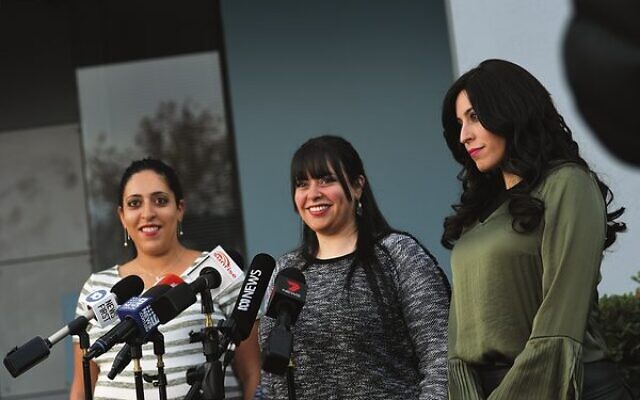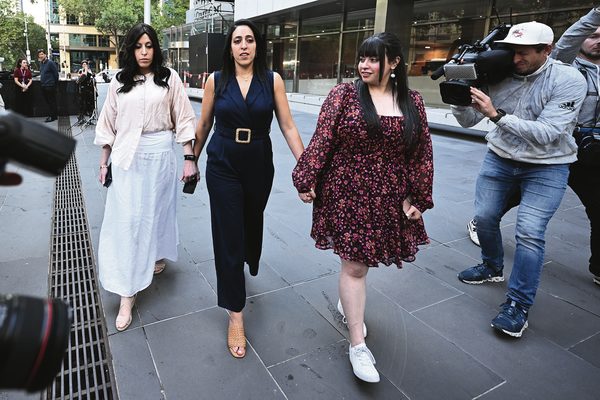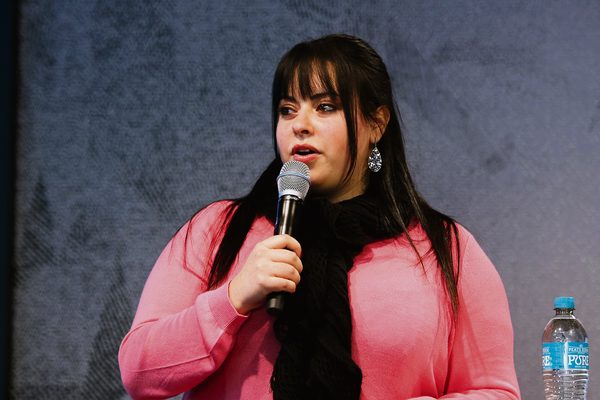In her own words
In her revealing memoir, Dassi Erlich opens up about her life and the struggles she encountered while pursuing justice against her abuser, writes Sharyn Kolieb.

Having watched Dassi Erlich in the media over many years as she pursued justice against her abuser Malka Leifer, who fled to Israel in 2008 and was extradited back to Australia in 2021, many may have felt that they already knew a lot about her.
But in her raw and revealing memoir In Bad Faith, Dassi shares the true story behind her stoic image. She recounts the abuse she endured as a child at the hands of her parents, the abuse she suffered by former Adass Israel School principal Malka Leifer, and ways in which the abuse affected her mental health and her ability to be the mother she always wanted to be.
The trauma she experienced so affected her that she has been at times suicidal and self-harmed. Her book opens with a chilling tale of how one morning in 2012 she had decided to jump in front of a train at Balaclava station in Melbourne. When the train passed, Dassi told herself she had two choices – to “give up” or to “get up and fight”.

She decided on the latter. “It will be hard, but it can be done. It must be done.” Many may be surprised to know that as Dassi appeared strong at the trial of Leifer in Melbourne in 2023, she was at the same time admitted to a psychiatric clinic. It was the same facility she attended in 2011 suffering from postpartum depression.
Speaking to The AJN, Dassi said that she is open about her mental health struggles in the hope it will break down the stigma surrounding these issues and show that “strength doesn’t mean not being vulnerable”. She said the process of writing the memoir was difficult and cathartic. Difficult because she had to recall traumatic memories, but cathartic once it was on the page.
Asked how she found the strength to continue to pursue justice after so many hurdles, including over 70 hearings, she said, “I think it was overcoming those hurdles that gave me the strength, but it was much more than that. It was all the people that helped us along the way.”
Dassi and her sisters Nicole Meyer and Elly Sapper may have started the pursuit of justice largely on their own, but their campaign to #BringLeiferHome ultimately attracted broad support within Australia from high profile leaders and on social media.
Dassi’s memoir notes the many who offered their support including prime ministers Malcolm Turnbull, Scott Morrison and Anthony Albanese, as well as current and former politicians including Daniel Andrews, Ted Baillieu, Mark Dreyfus, Josh Burns, David Southwick, Dave Sharma, Michael Danby and Phil Dalidakis, and community leaders Mark Leibler and his son Jeremy.
Dassi said it was also the powerful bond between her sisters in “doing it together” that enabled them to continue the mission to ensure Leifer never abused anyone else.

In her book she writes, “Without my sisters, and my brothers’ support, I don’t know if I could have stood strong for the 15 years it took for my abuser to be found guilty.”
Leifer was ultimately found guilty for sexually abusing Dassi and Elly and sentenced to 15 years, but Leifer was acquitted of the charges in relation to Nicole.
As to whether she feels justice was served, Dassi said, “It’s so incredibly rare even for a case [of sexual abuse] to go to court and for it to get to the point that it did and to be heard and for her to be found guilty … a 15-year sentence was validating.”
Victims of abuse often decide not to proceed with a police complaint for fear the legal process will be too traumatic and unsuccessful.
An Australian Law Reform Commission inquiry has recently been established to consider the criminal justice system’s response to sexual assault and prevent further harm being caused to victim-survivors. Asked if she felt traumatised by the court process, Dassi said, “The whole trial process was incredibly retraumatising and retriggering,”
adding, “I understand why people don’t want to go through that, especially with the rate of guilty convictions.”
On this issue, Dassi wrote in her memoir, “It struck me how unjust a burden it was for those who had already endured abuse to have to fight so hard for justice. Often it seemed that the victims themselves were the only ones willing to raise their voices, aware that silence would only perpetuate the heinous crime.
“We, the survivors, drew strength from the depths of our trauma, pushing forward where others might falter. At times, I perceived it as post-traumatic growth, an unwavering resilience to persist against all odds. At other times I did not.”
Regarding whether she believes the Adass Israel congregation has learnt from her experience and changed its approach to reports of abuse, she said, “After all these things being taken to court, there isn’t a reflective process where they’re like, we need to change course here.”
In her memoir she laments the forces that organised Leifer’s flight to Israel, fundraised for her defence, and harassed Dassi’s family. Her sister Dalia died from a heart condition soon after facing threats and harassment because of the quest to bring Leifer to justice.
Now that the trial is over, Dassi said the “black cloud” has lifted and she is focused on healing and helping others. She is working on a research project with the organisation Pathways Melbourne, which supports people from Orthodox and ultra-Orthodox Jewish communities who are questioning their lifestyle, practices and beliefs.
In Bad Faith is beautifully written and eloquently sheds light on the dark times Dassi experienced, breaking down stigmas by openly discussing abuse and mental health. It also serves as a cautionary tale of how the community needs to do better to prevent and address abuse.
Dassi Erlich will discuss In Bad Faith at the Wheeler Centre in Melbourne on February 21, and at the Adelaide Festival in March.

comments